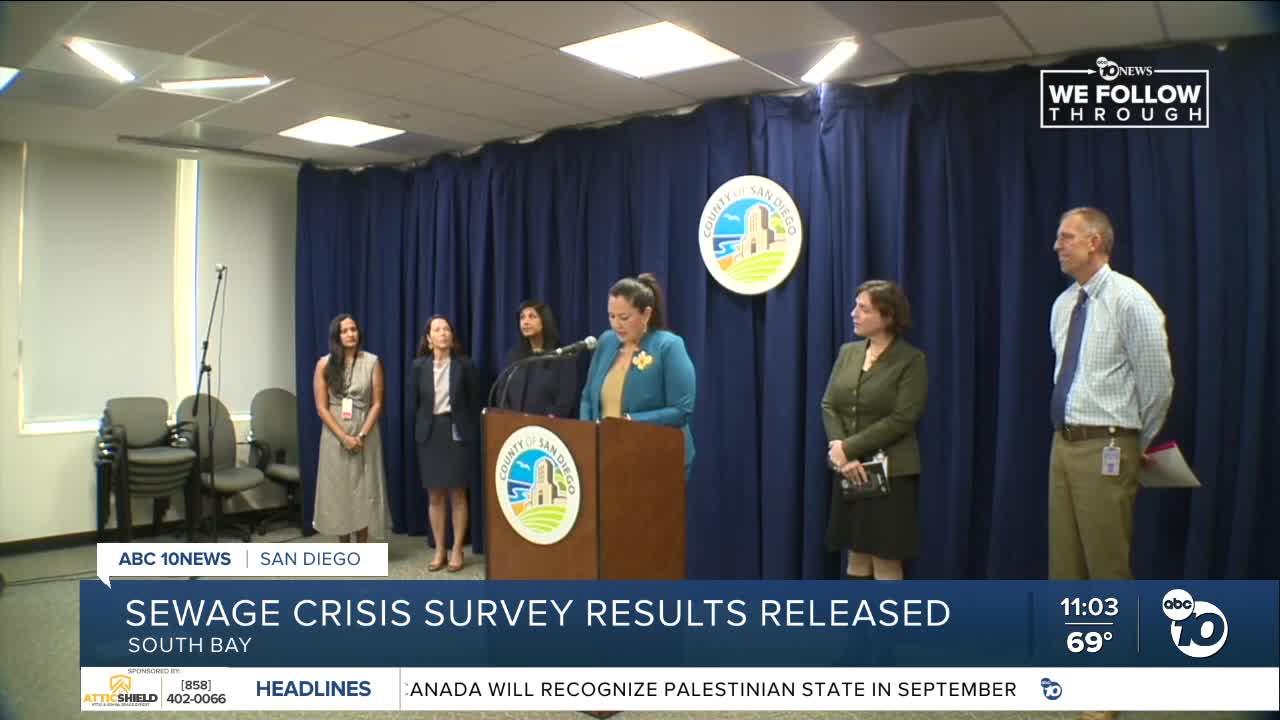IMPERIAL BEACH, Calif. (KGTV) — A CDC survey confirms hundreds of South Bay residents suffering from sewage-related illnesses. Doctors at South Bay Urgent Care in Imperial Beach have been noticing a troubling pattern of patients repeatedly seeking treatment for symptoms they believe are linked to the ongoing sewage crisis.
"When the hydrogen sulfide levels are high, when it smells, people start coming in," said Dr. Kimberly Dickinson.
These recurring health issues - headaches, eye irritation, and respiratory problems - are now documented in a new CDC survey that confirms hundreds of South Bay residents are battling the same illnesses.
"It's very frustrating as a physician is, you know, these are preventable illnesses," Dr. Dickinson said.
The survey results have shocked county health officials, highlighting the widespread nature of the problem.
"Our response was definitely a shock that there's more to be done, that the story is not closed," said the county's public health officer.
The CDC surveyed just under 2,100 people from Imperial Beach, Otay Mesa West, San Ysidro, and Coronado last October, revealing alarming statistics about the impact of the sewage crisis on local communities.
According to the data, 64% of respondents reported at least one new or worsening symptom attributed to sewage exposure. The most commonly reported symptoms - headaches, runny nose, congestion, eye irritation, and coughing - all align with known effects of hydrogen sulfide exposure.
Perhaps most concerning, 67% of those surveyed believe it is not safe to visit, work, or live in the South Bay area.
Dr. Kimberly Dickinson says these results confirm what medical professionals in the area have been observing.
"That's what we were expecting. That's what we've been trying to tell the county for the last 2 years is that we're concerned that there's associated illness with the sewage," she said.
Safety concerns have dominated South Bay discussions for years. In September, county officials declared the area "safe" from immediate threats of hydrogen sulfide and cyanide. However, in January, new research from UC San Diego challenged this assessment, though county officials maintained their position with support from the state's public health department.
When asked directly about safety in light of the new CDC data, the county's public health director offered a nuanced response.
"I hesitate to say safe and really I think of that as a relative term. Someone can logically look at the air pollution monitoring results and say, hey, this is lower than maybe some of the air quality thresholds that the state or federal government has, and maybe the numbers aren't as high, and they may think it's safe, whereas another family might have a youth that has asthma attacks and exacerbations due to this," he said.
One particularly striking finding from the survey shows that 31% of respondents sought medical care specifically because of sewage-related symptoms.
Doctors Kimberly and Matthew Dickinson believe the survey represents a crucial step forward in addressing the crisis. Meanwhile, county officials plan to use these new findings to request a state of emergency declaration from the state.
This story was reported on-air by a journalist and has been converted to this platform with the assistance of AI. Our editorial team verifies all reporting on all platforms for fairness and accuracy.




